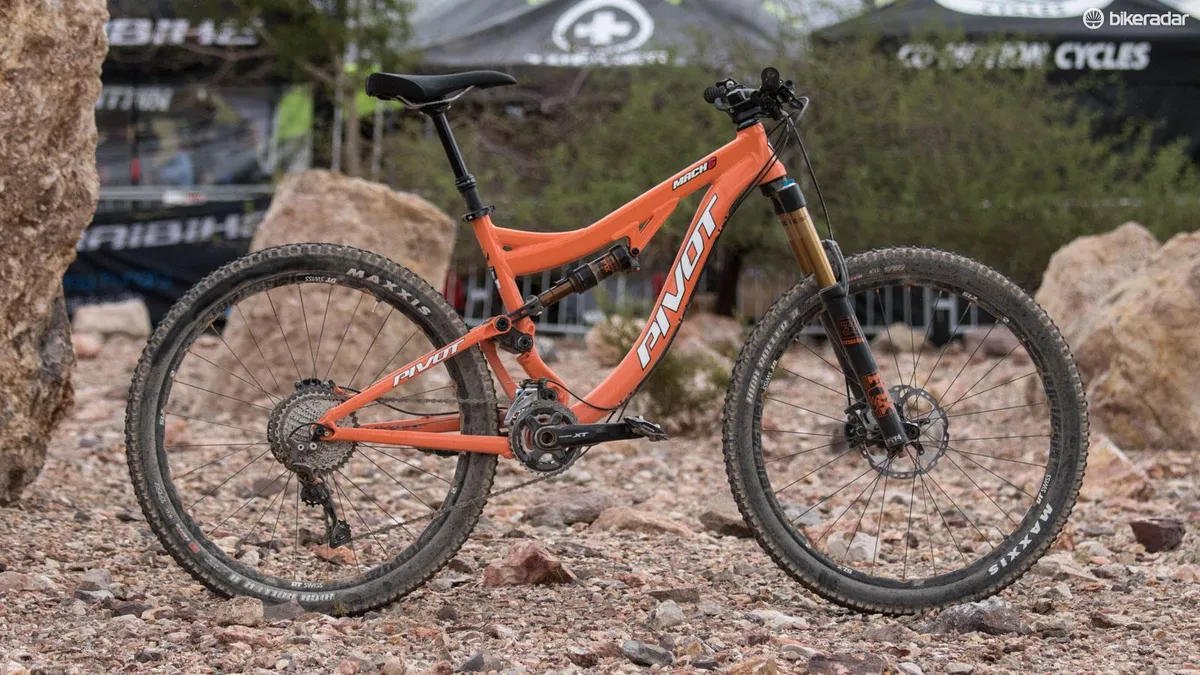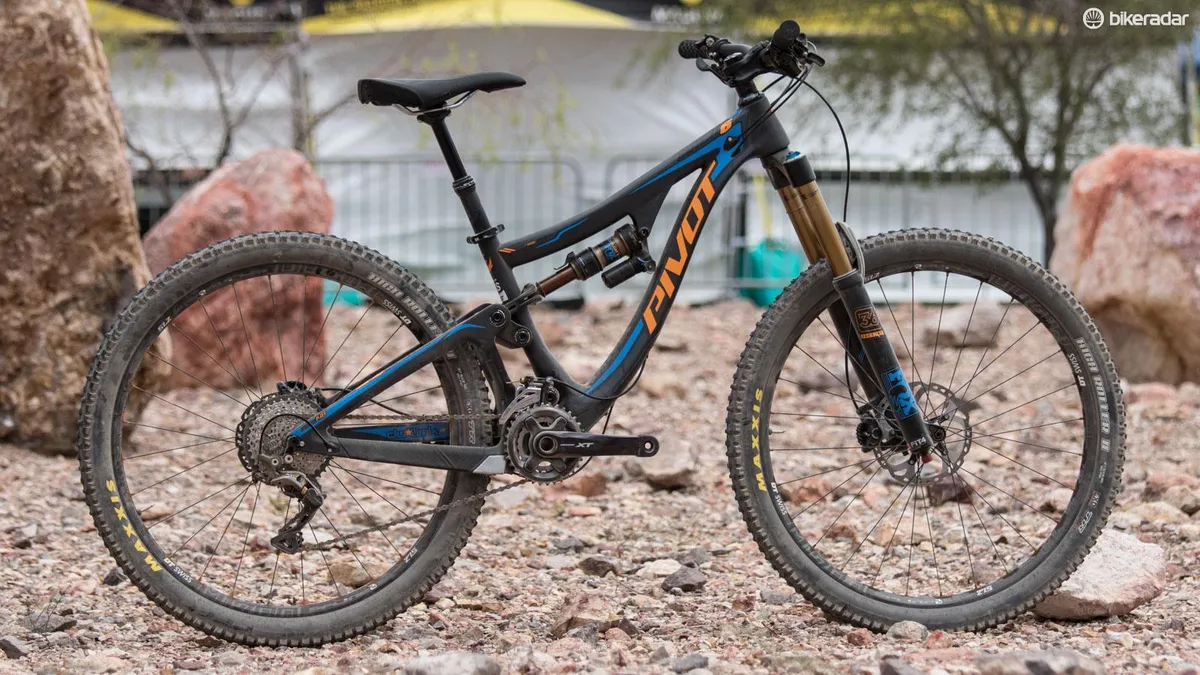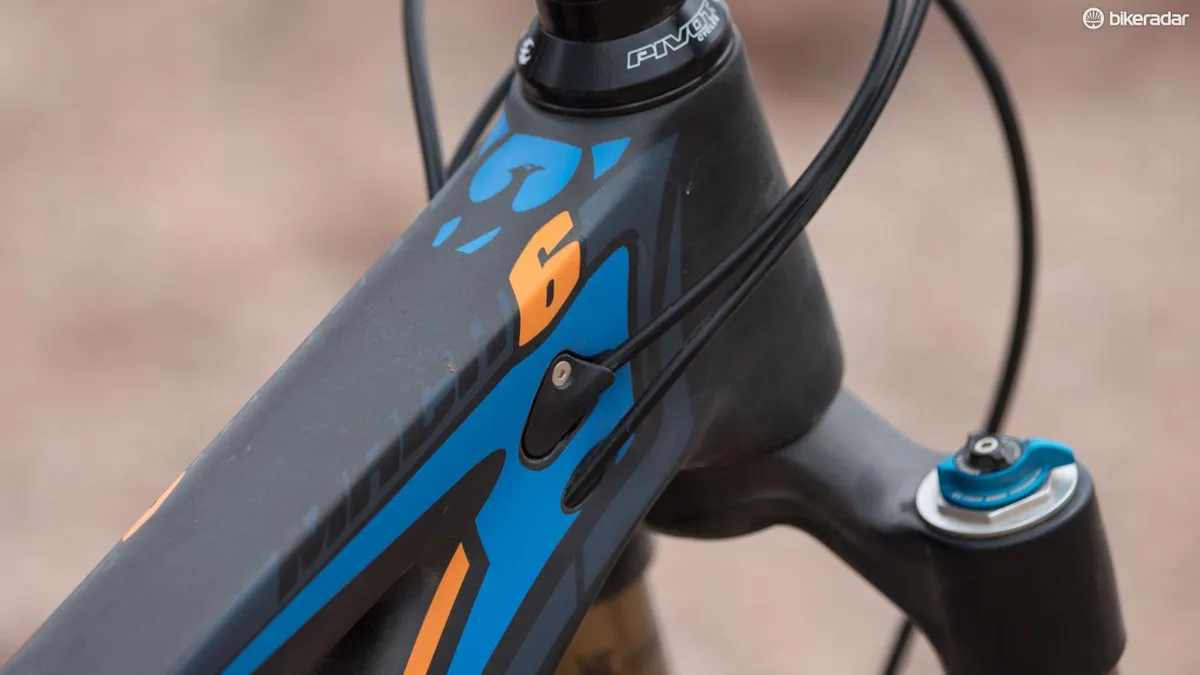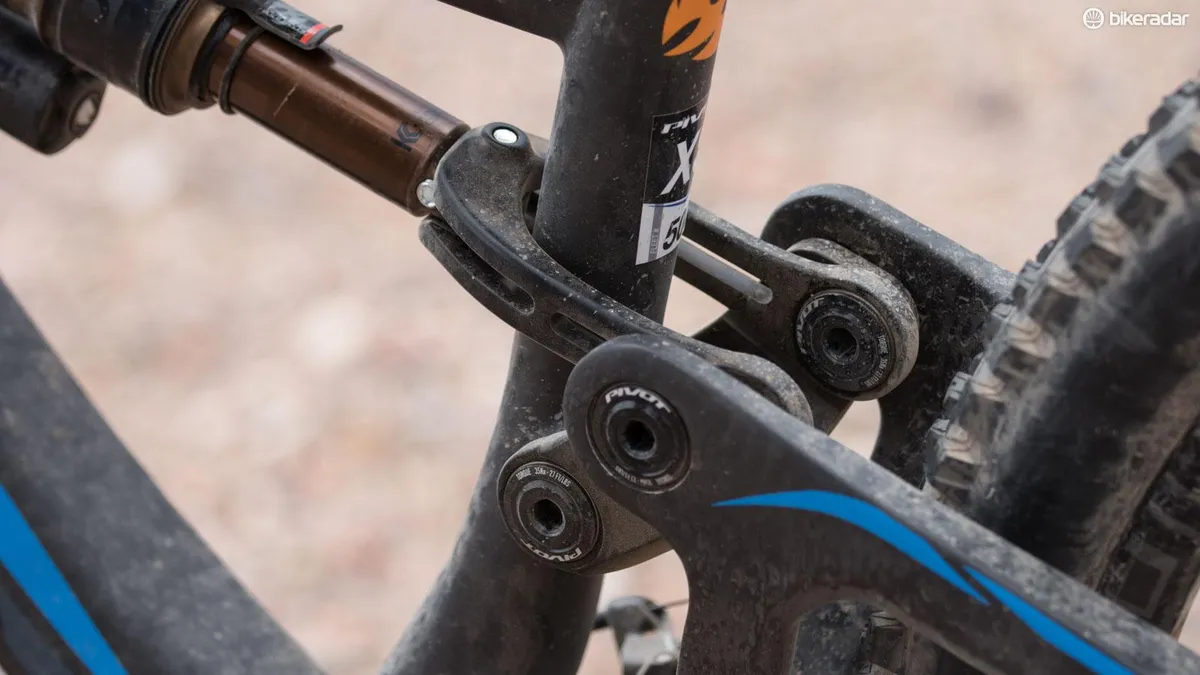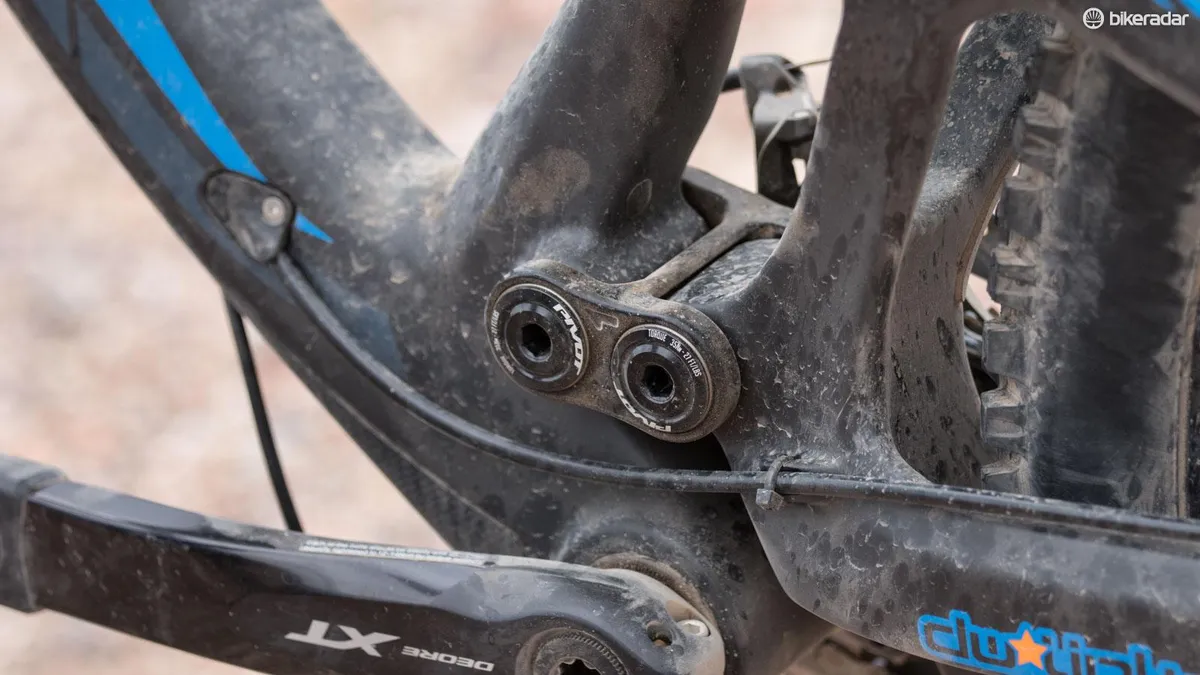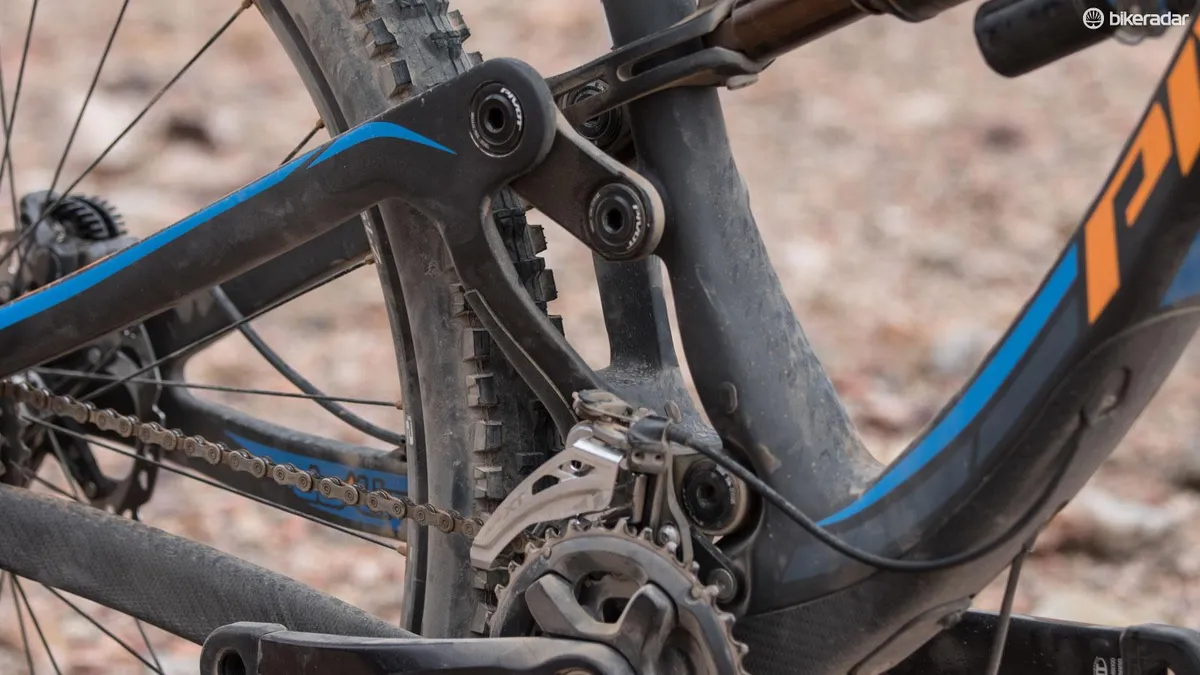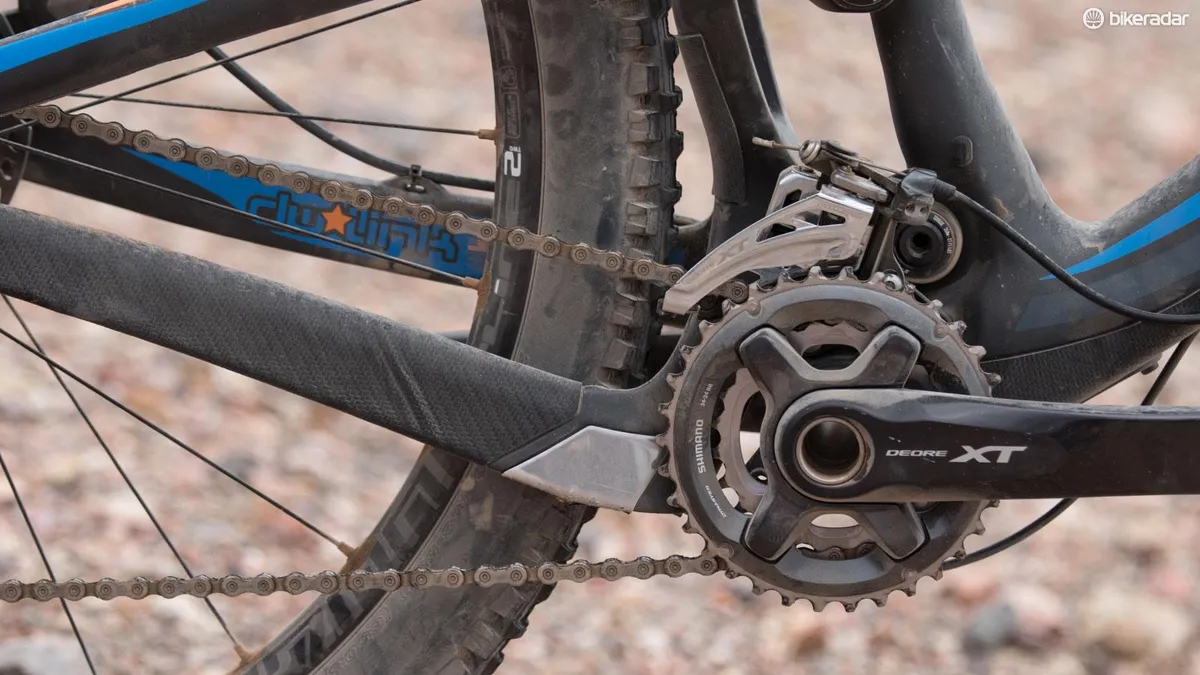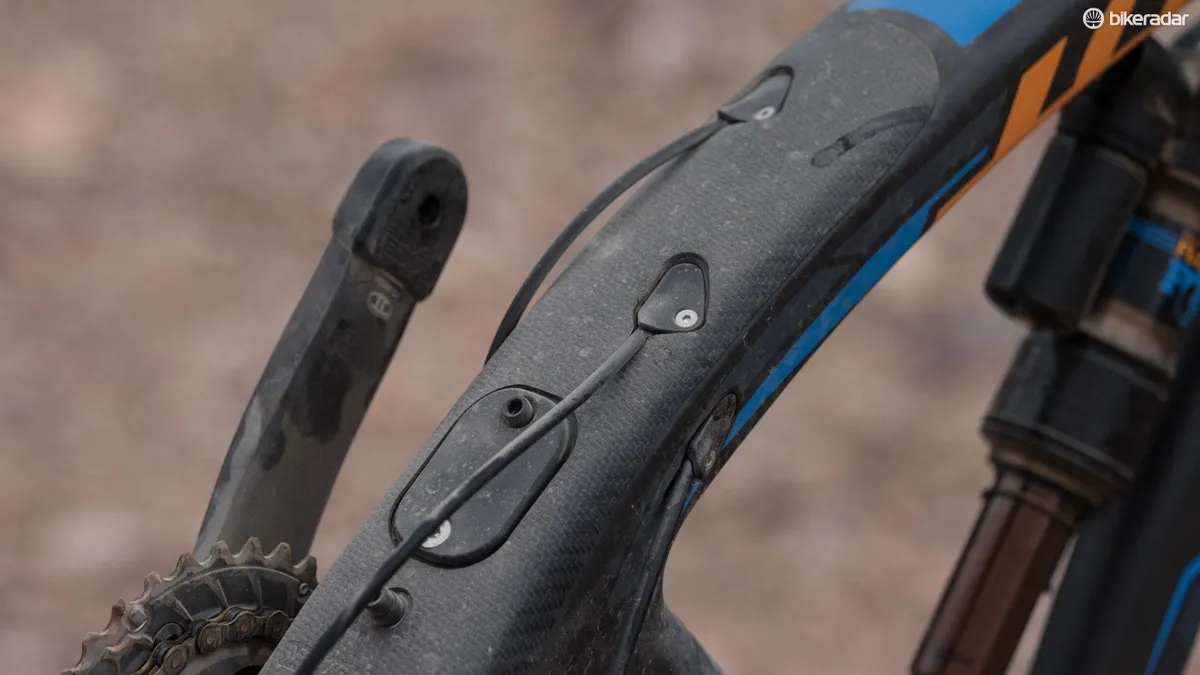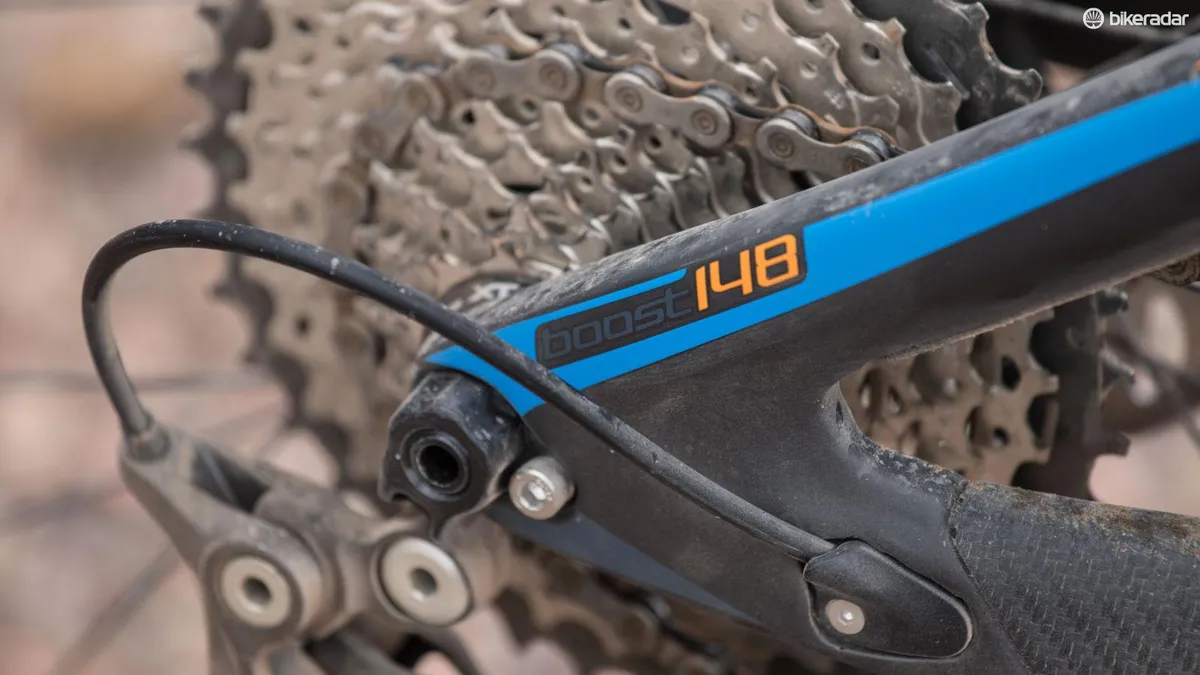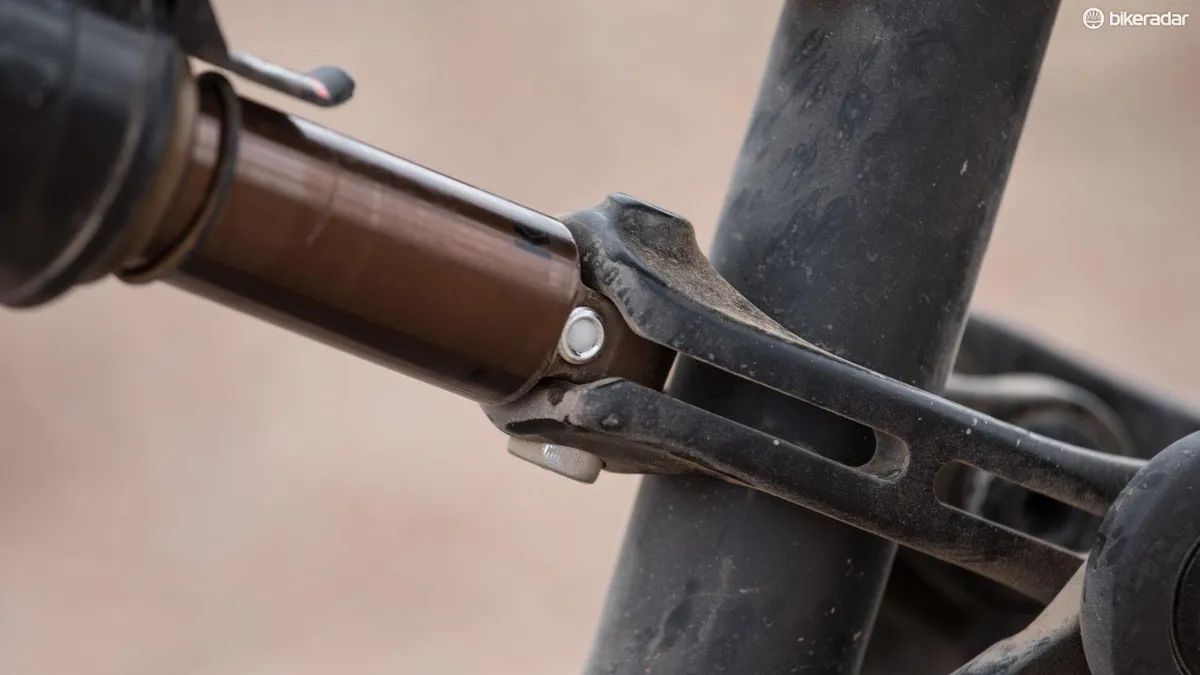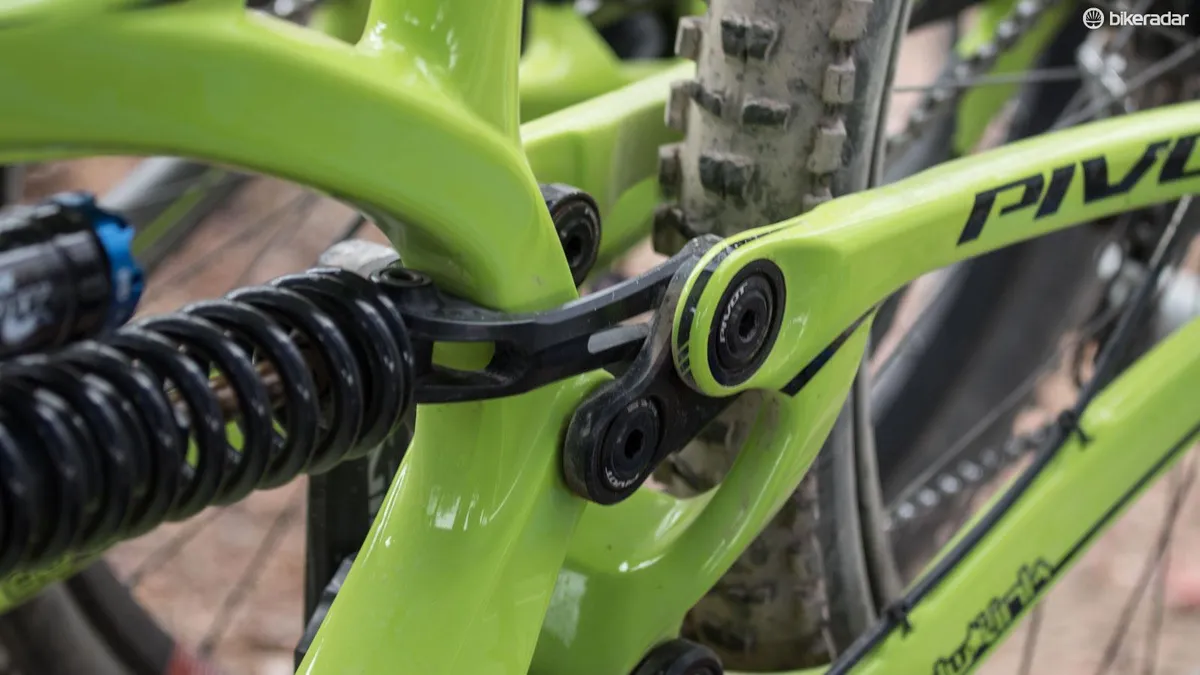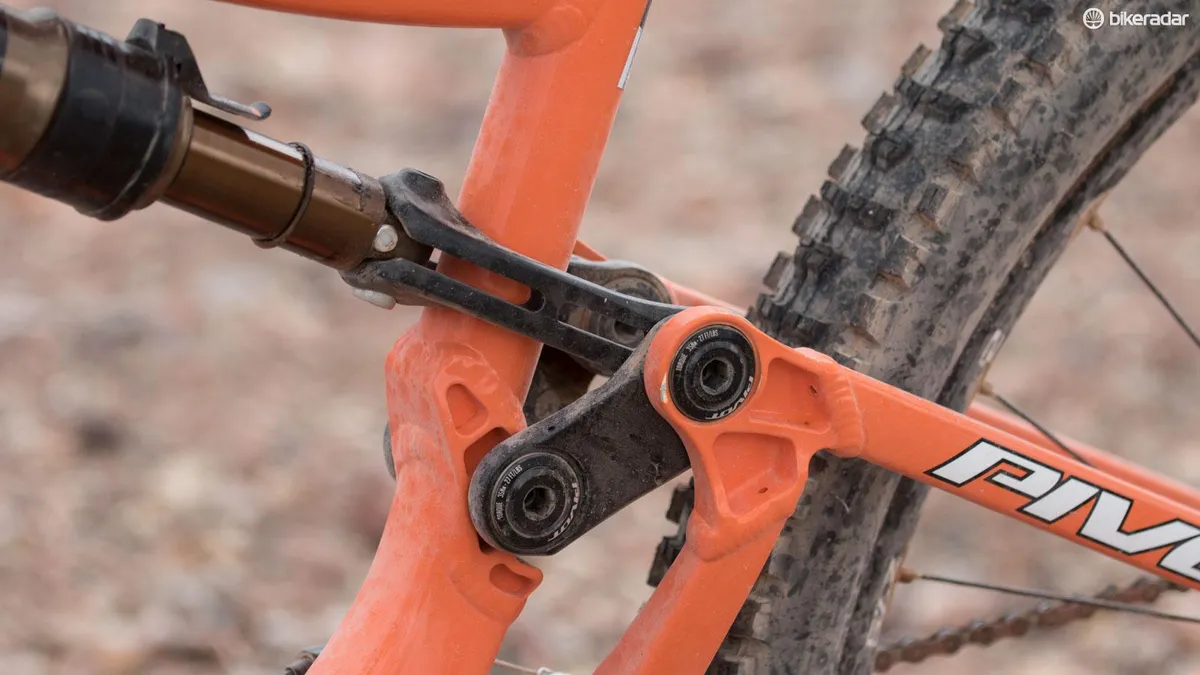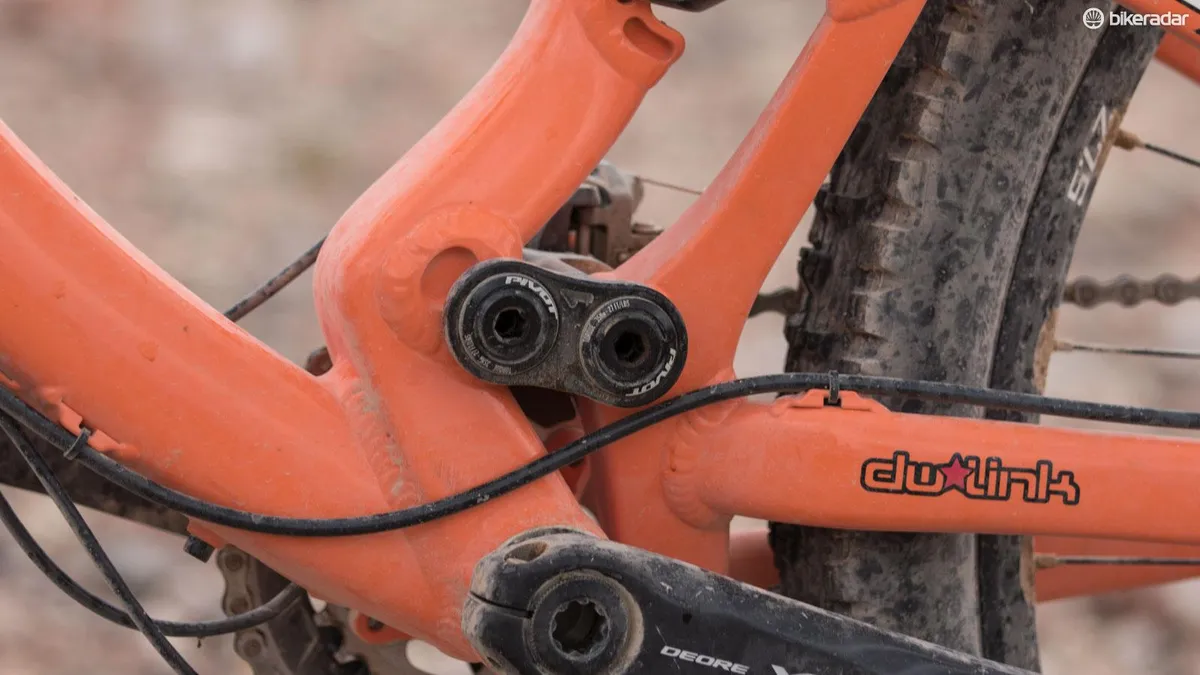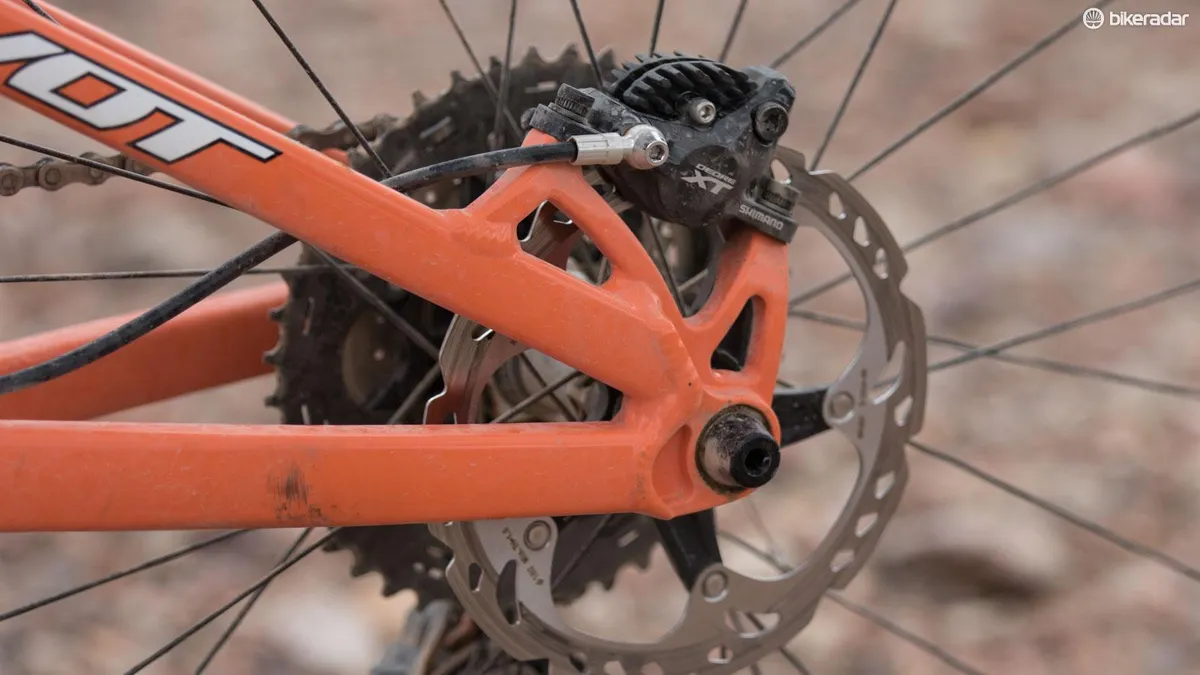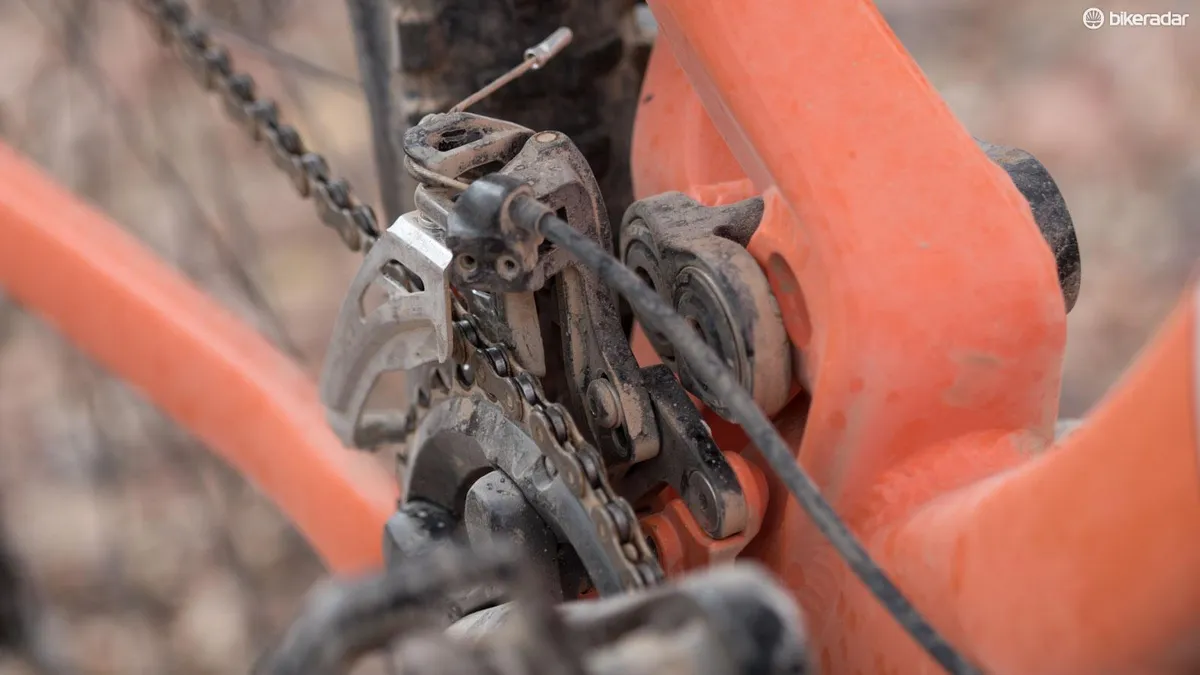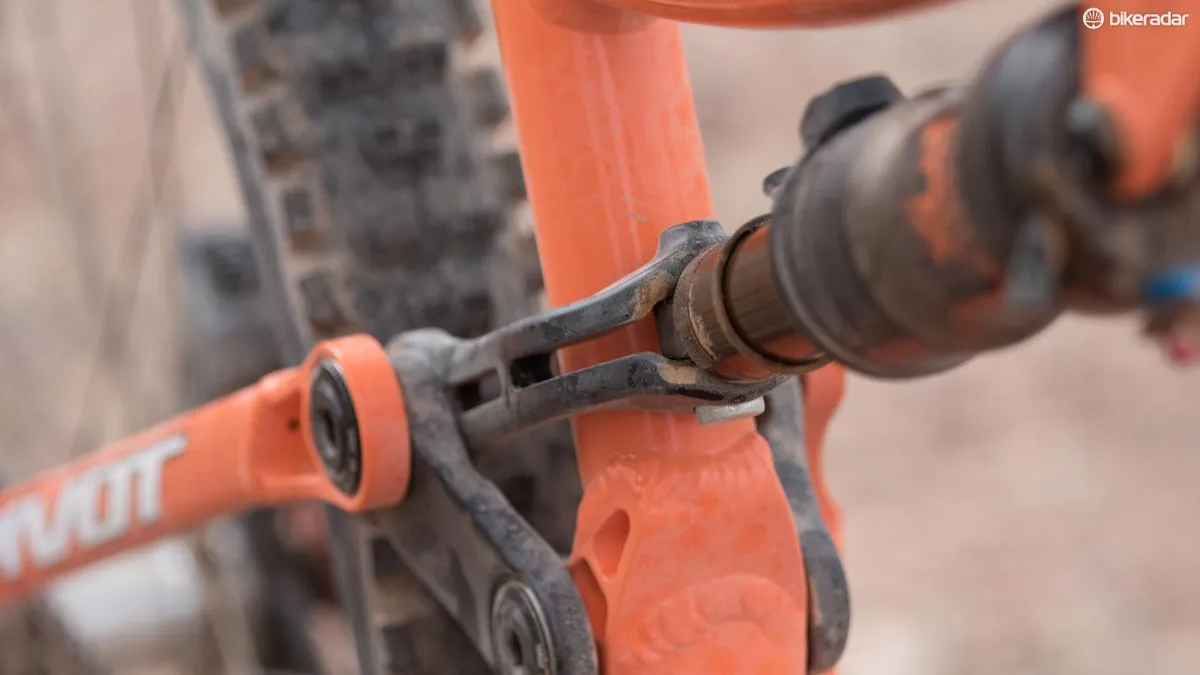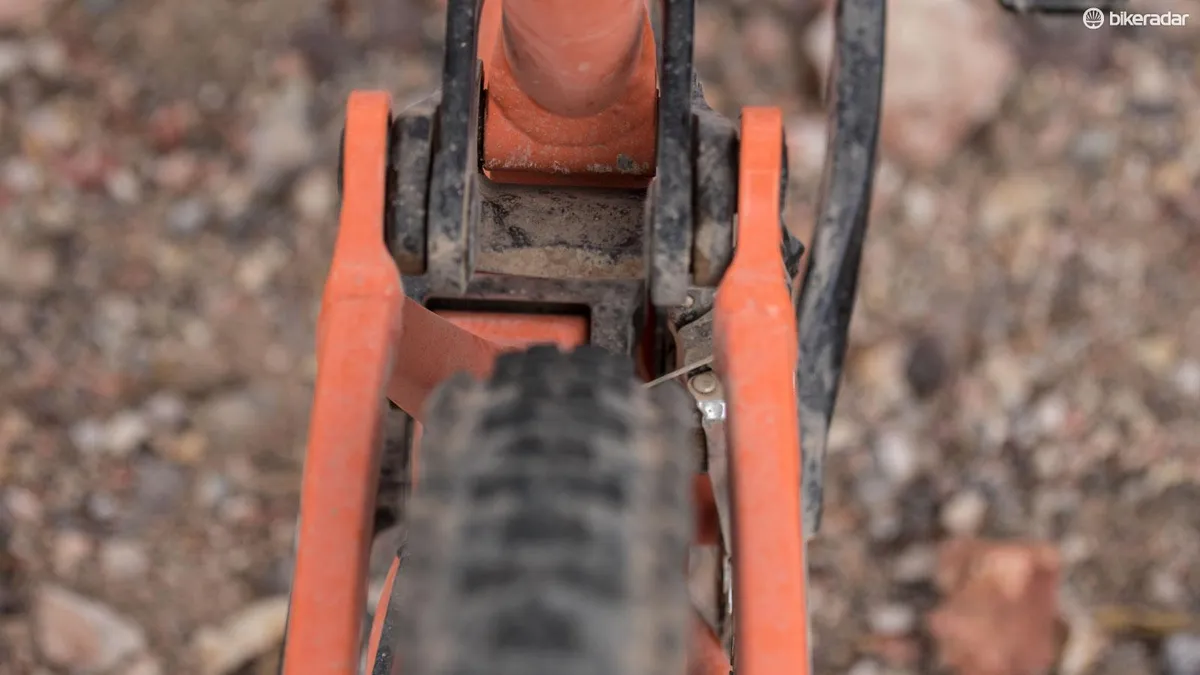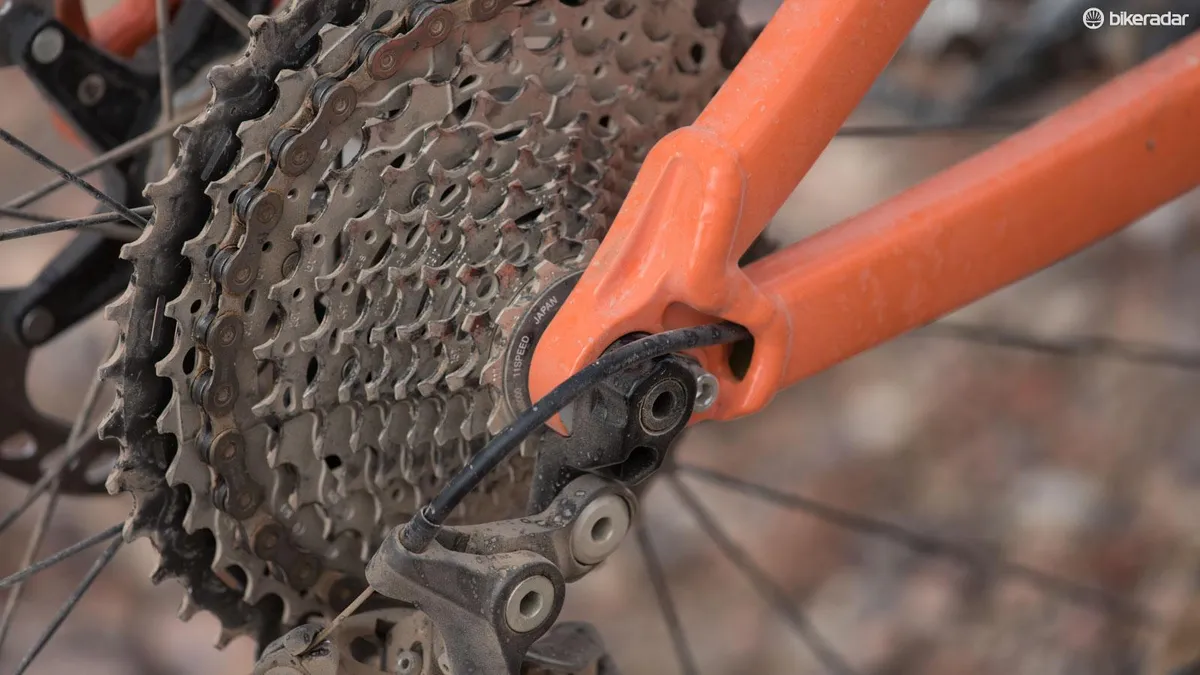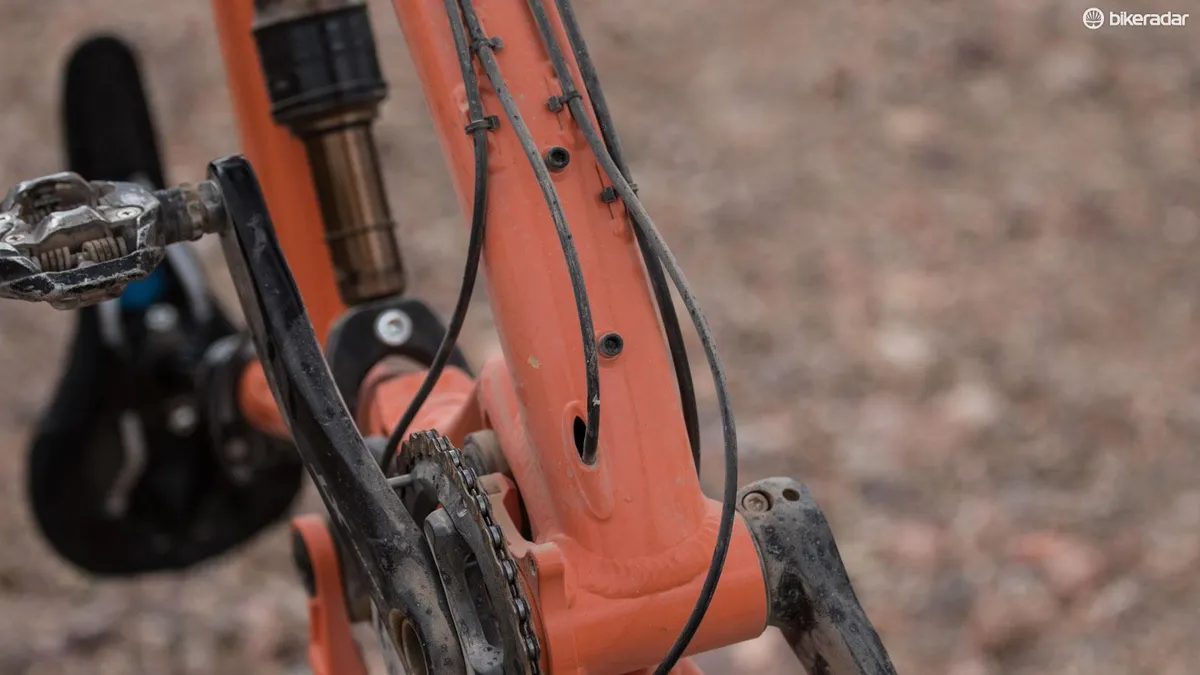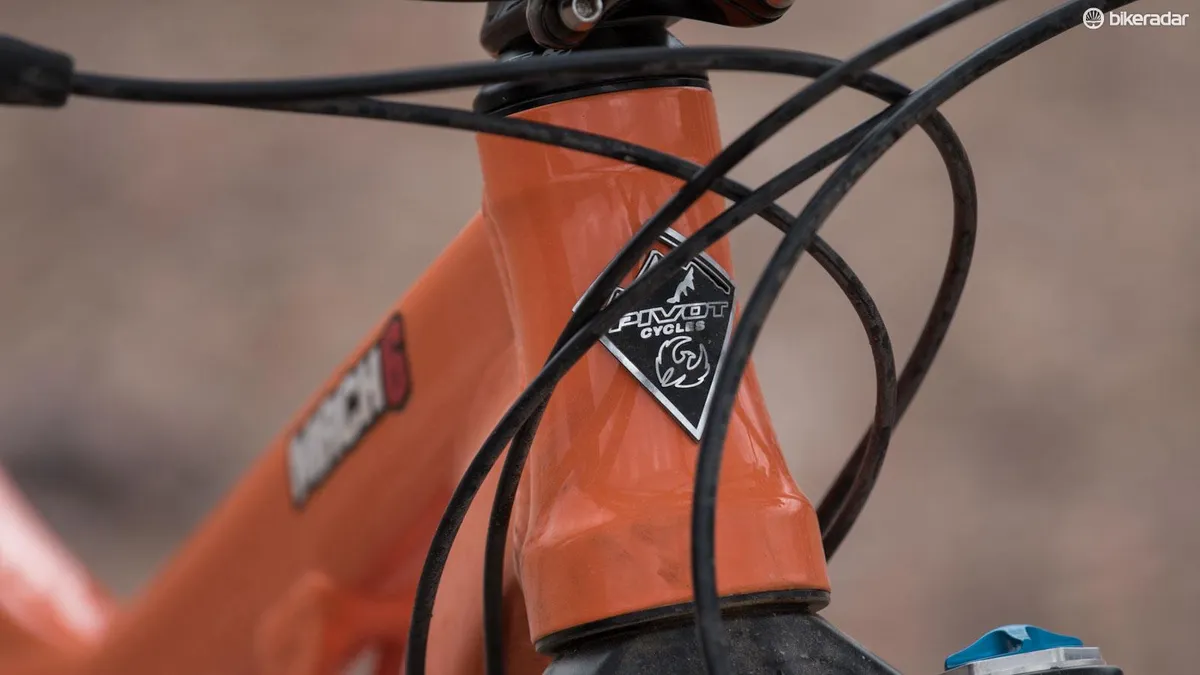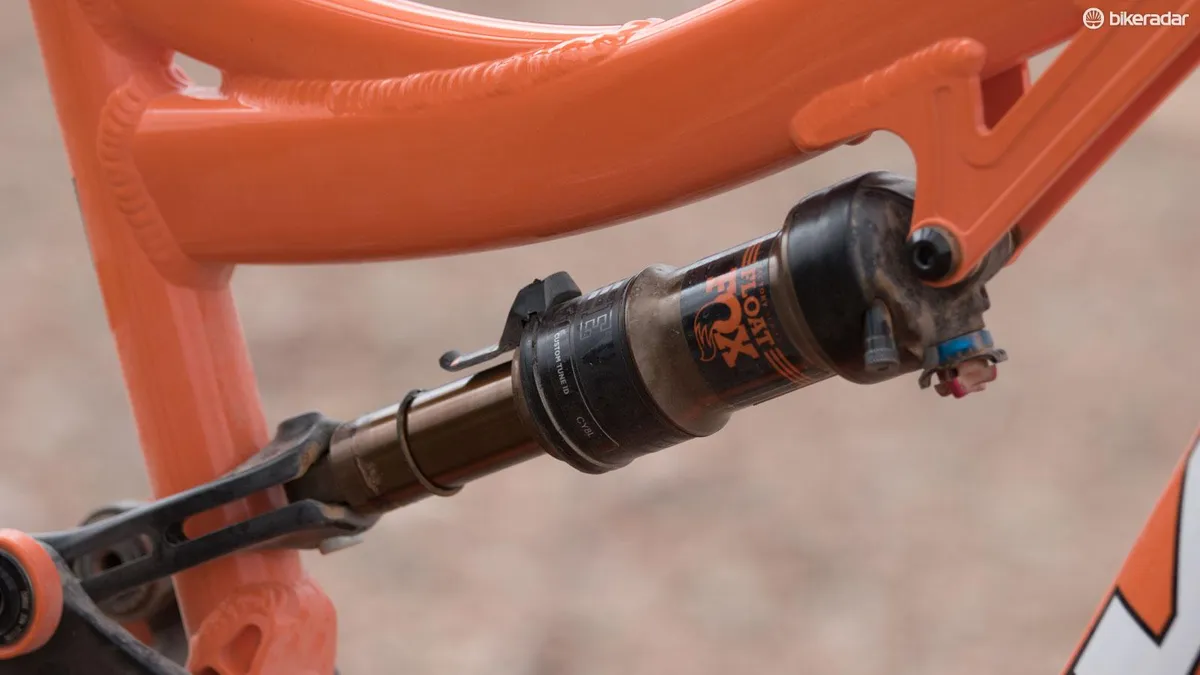Pivot’s 155mm travel enduro bike, the Mach 6 Carbon, gets some notable updates for 2016, but the big story is the new and more affordable Mach 6 Aluminum.
Mach 6 Carbon
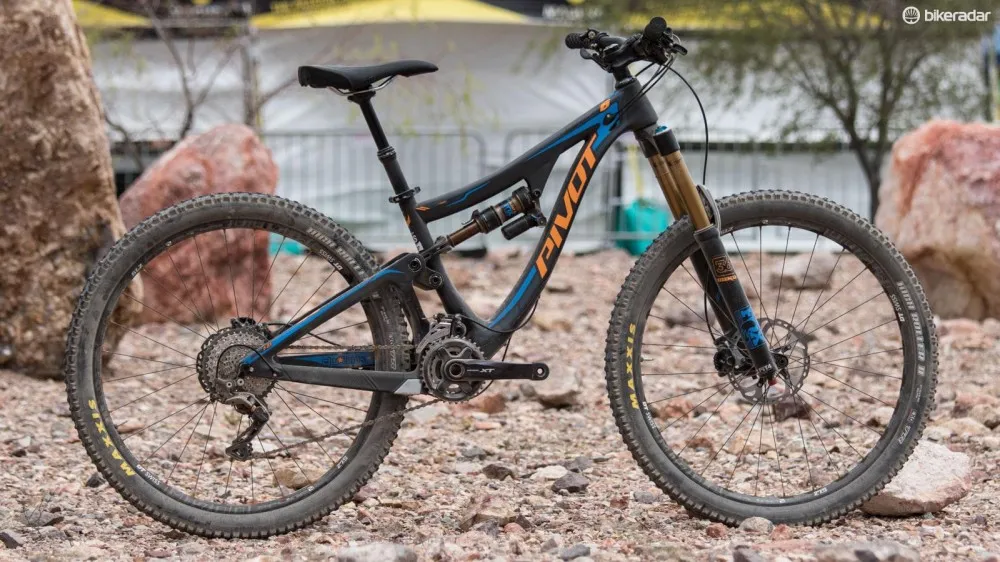
The Carbon Mach 6 is available in tiny Extra-Small frame size
Built for the aggressive trail or enduro rider, the 27.5in Mach 6 Carbon has been a popular bike over the past few years. While plenty has changed, the geometry remains the same. The 430mm chainstays and 66-degree head angle are little to complain of, but the top tube lengths oppose the growing trend toward longer top tubes and shorter stems. The Mach 6 is no doubt on the shorter side for a bike aimed at the enduro rider, but Pivot is confident in the geometry, saying you can still enjoy taking it uphill.
Also continuing is Pivot’s long-standing use of the Dave Weagle designed dw-link suspension design, which aims to provide efficient and traction-filled climbing with a bottomless feel on the descents. Sitting within the linkage is FOX’s new Float X rear shock with Kashima coat and EVOL air sleeve (Float DPS given on two lowest models). This is matched with FOX’s popular 160mm Float 36 fork on all complete bike models.
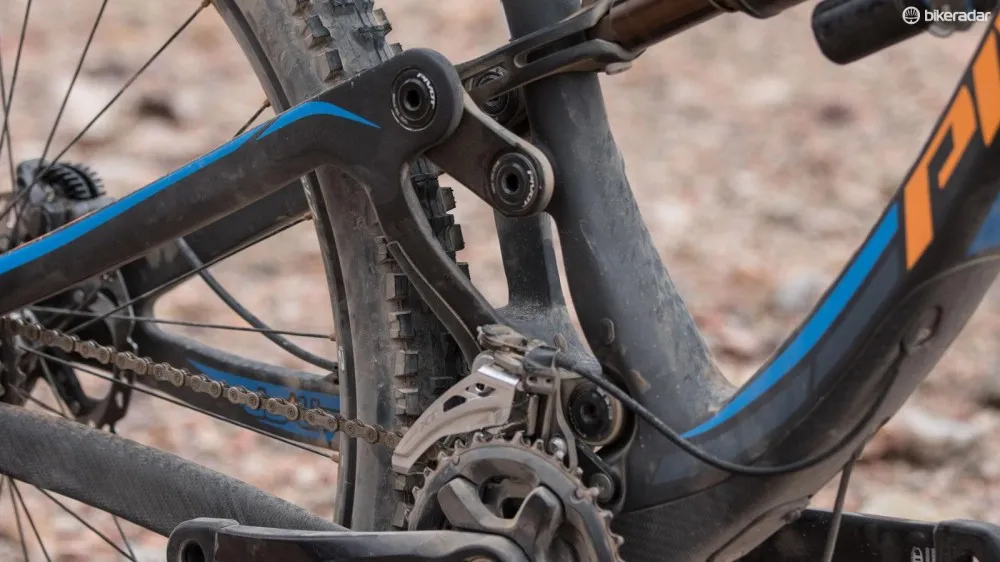
The new linkage design is all about improved stiffness and durability
Moving to what is new, Pivot borrowed design aspects from its Phoenix downhill bike, such as the double wishbone rear triangle, improved lower linkage and large suspension-specific Enduro MAX bearings. In addition to this, there’s a new upper linkage that boasts a 150-percent increase in stiffness over the old and the rear wheel spacing has gone to Boost 148. This is done for the purpose of increased frame stiffness, improved pivot durability and expanded clearance.
All of these stiffness improvements do come at a slight weight penalty to the old, with Pivot claiming the new frame to sit a shy over 2.75kg / 6lbs.
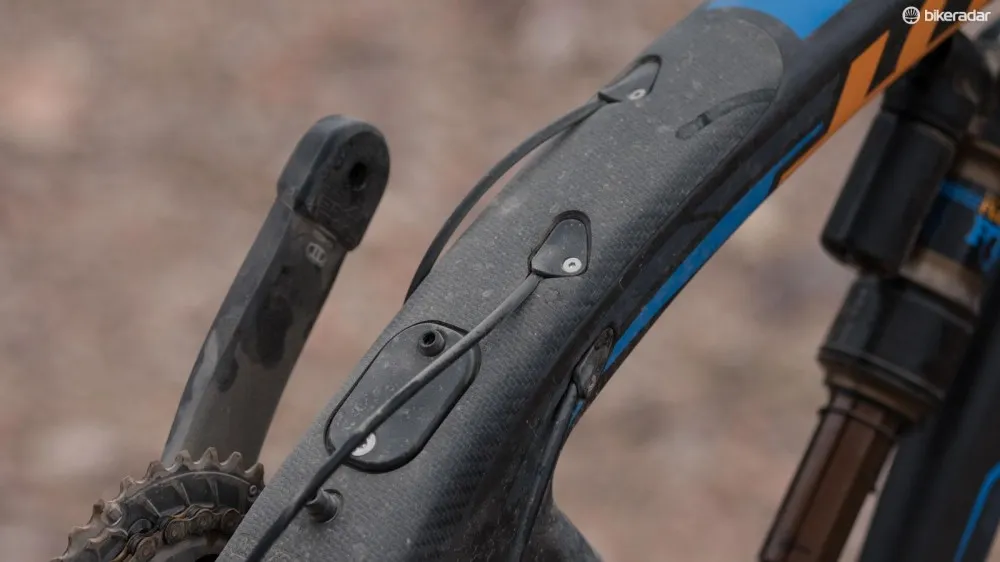
New internal cable routing system has been built with Di2 compatability in mind
Attempting to future proof the Mach 6 Carbon in a market full of new drivetrain and seatpost concepts, Pivot has equipped its internal ‘Cable Port System’. Simply put, these are interchangeable port covers that allow for a wide range of compatibility and routing options. As a result, the Mach 6 Carbon is ready for Di2 gearing while keeping all the wires, battery and junction boxes hidden and secure. It’s a concept Pivot firmly believe is the future for performance-focused riders.
Keeping those options wide open is a removable front derailleur mount, something Pivot designed to provide for a seamless look if run with a single ring up front. For those looking to put a double ring up front, Shimano’s new low-profile Side Swing standard is used. For those wanting a chainguide, ISCG05 mounts sit around the PF92 bottom bracket shell.
A Carbon frame will cost $2,999, with multiple complete bikes ranging from $4,699 all the to $9,799 for an XTR Di2 build.
Mach 6 Aluminum
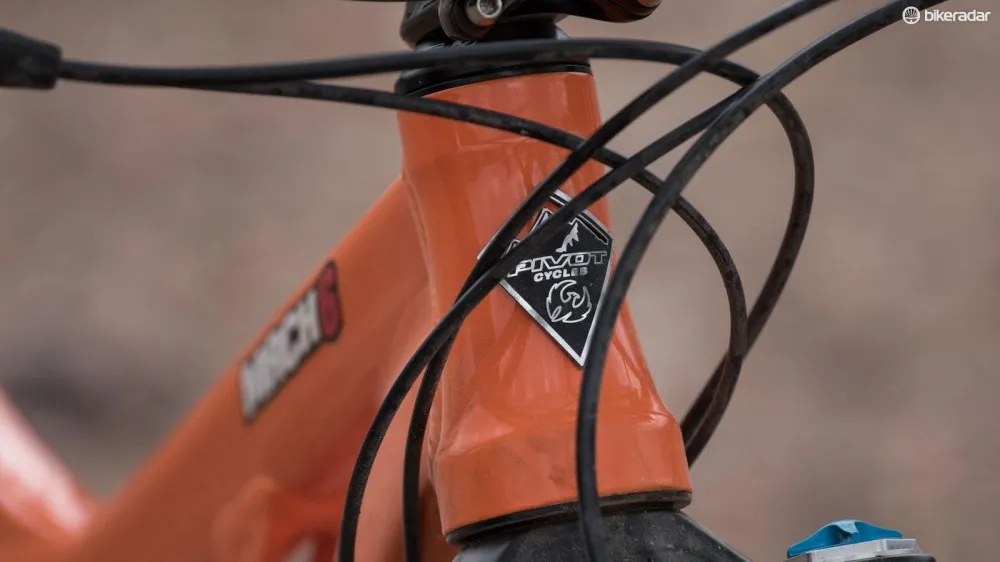
Mach 6 goes Alloy for 2016
Where the Carbon tells the story of what’s different, the Mach 6 Aluminum is totally new for 2016 and comes as a result in advancements in hydroforming techniques. Much like is common in a carbon frame, Pivot has been able to finely control material wall thicknesses in non-cylindrical components that was not previously possible in aluminum just a few years ago.
Carrying an approximate 400g-weight penalty over the Carbon, the Aluminum has been built to the same stiffness and suspension performance standards. All Aluminum models feature the new FOX Float DPS rear shock, most in Kashima coat.
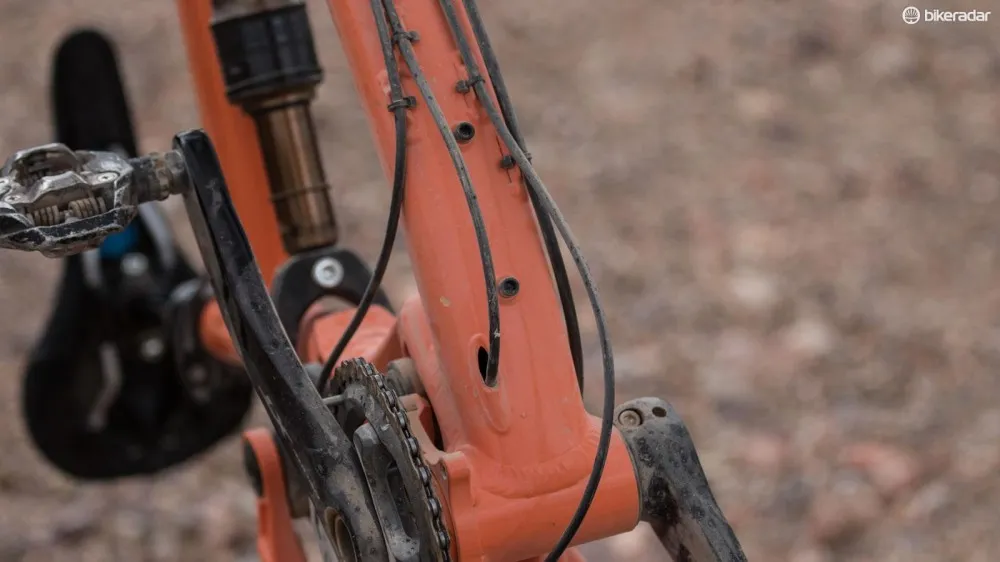
The hole visible hole is a for a stealth-type dropper seatpost
Beyond the weight and price, the only other key frame difference is seen in the cable routing. The Aluminum features external cable routing that runs beneath the down tube and lower linkage. Stealth dropper compatibility remains, but the ability to cleanly run Di2 is lost.
We managed a brief spin on the Mach 6 Aluminum with a ‘Pro 2x’ build consisting of Kashima-coat FOX suspension front and rear, Shimano XT 11-speed groupset with XTR rear derailleur and DT Swiss Spline-Two M1700 wheels. All up, this $4,999 bike weighed a respectable 13.7kg / 30.2lb. We’ll save the ride impressions for when we get it onto our local trails.
Aluminum frames with a Kashima coat rear shock are $1,999, with complete bikes from $3,499 to $7,499.
Both the Mach 6 Carbon and Aluminum are available in frames sizes XS through to XL.

